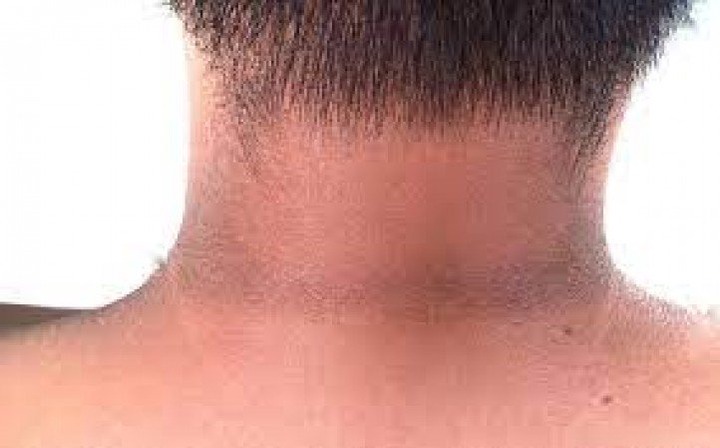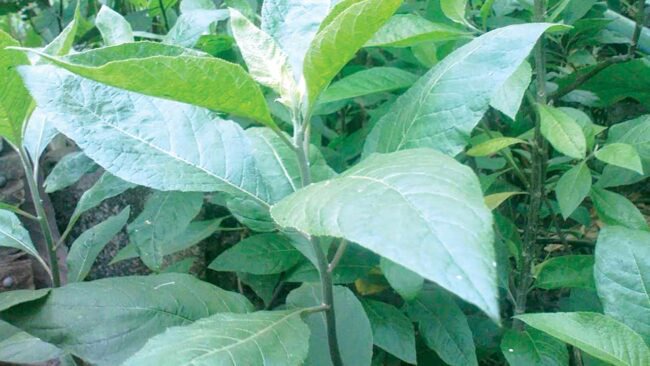
When your neck begins to turn black, it’s more than just a cosmetic concern. It’s a warning sign from your body that something isn’t right. Understanding what’s happening and taking action can be crucial in saving your health.
The Alarming Blackening
A blackened neck, often referred to as acanthosis nigricans, isn’t just about the color change. It’s a condition that indicates underlying health issues. This condition is characterized by areas of dark, velvety discoloration in body folds and creases, such as the neck, armpits, groin, and sometimes the hands and feet.
What Causes the Darkening?
Several factors contribute to the blackening of the neck, including obesity, insulin resistance, hormonal disorders, and certain medications. Obesity is one of the most common causes, as excessive body weight can lead to insulin resistance, which in turn triggers the skin discoloration.
Acanthosis nigricans may also be caused by insulin resistance, which occurs when the body’s cells become less responsive to insulin, the hormone responsible for regulating blood sugar levels. As a result, the body produces more insulin to compensate, leading to an overgrowth of skin cells and the characteristic darkening of the affected areas.
The Link to Health Conditions
The appearance of acanthosis nigricans is commonly associated with health conditions such as diabetes, thyroid disorders, and polycystic ovary syndrome (PCOS). In the case of diabetes, insulin resistance plays a significant role. When the body becomes resistant to insulin, it can’t effectively regulate blood sugar levels, leading to high levels of glucose in the bloodstream. This excess glucose can cause damage to blood vessels and nerves, leading to various complications, including skin changes like acanthosis nigricans.
Diabetes: A Prime Concern
One of the primary concerns linked to a blackened neck is type 2 diabetes. The darkening may occur due to insulin resistance, a hallmark of diabetes. Type 2 diabetes is a chronic condition characterized by high blood sugar levels resulting from insulin resistance and insufficient insulin production. When left untreated, diabetes can lead to serious complications, including cardiovascular disease, kidney failure, and nerve damage.
Understanding the Risk Factors
Certain risk factors increase the likelihood of developing acanthosis nigricans. Obesity, family history, and ethnicity play significant roles. Obesity is a major risk factor for acanthosis nigricans, as excess body weight is closely linked to insulin resistance and diabetes. Individuals with a family history of diabetes or insulin resistance are also at increased risk of developing acanthosis nigricans, as genetics can play a role in predisposing individuals to these conditions.
Obesity and Insulin Resistance
Obesity often accompanies insulin resistance, which can lead to the darkening of the neck and other areas of the skin. Excess body fat, particularly visceral fat around the abdomen, can increase inflammation and insulin resistance, contributing to the development of acanthosis nigricans. Additionally, certain ethnicities, such as African American, Hispanic, and Native American populations, have a higher prevalence of acanthosis nigricans, possibly due to genetic factors and lifestyle habits.
Seeking Medical Evaluation
If you notice your neck turning black, it’s essential to seek medical evaluation promptly. A healthcare professional can assess your symptoms and determine the underlying cause. A dermatologist or primary care physician can diagnose acanthosis nigricans through a visual examination and may recommend further tests to identify any underlying health conditions.
Consulting a Dermatologist
A dermatologist can diagnose acanthosis nigricans through a visual examination and may recommend further tests to identify any underlying health conditions. These tests may include blood tests to check for diabetes, thyroid function tests, and hormone tests to evaluate for conditions such as PCOS. Depending on the results of these tests, additional imaging studies or consultations with specialists may be necessary to determine the appropriate treatment plan.
Taking Action for Better Health
Once the cause of the blackened neck is determined, taking action is crucial for improving your health and preventing complications. Treatment for acanthosis nigricans focuses on addressing the underlying cause, such as obesity, insulin resistance, or an underlying medical condition like diabetes or PCOS.
Managing Underlying Conditions
Managing conditions such as diabetes, thyroid disorders, and obesity through lifestyle changes and medication can help alleviate symptoms and prevent complications. For individuals with diabetes, maintaining healthy blood sugar levels through diet, exercise, and medication can help improve insulin sensitivity and reduce the risk of complications like acanthosis nigricans. Similarly, for individuals with thyroid disorders or PCOS, appropriate medical treatment and lifestyle modifications can help manage symptoms and improve overall health.
Embracing a Healthy Lifestyle
Adopting a healthy lifestyle is key to preventing and managing acanthosis nigricans. This includes maintaining a balanced diet, exercising regularly, and managing stress. A diet rich in fruits, vegetables, lean proteins, and whole grains can help regulate blood sugar levels and promote overall health. Regular physical activity can improve insulin sensitivity, aid in weight management, and reduce the risk of developing acanthosis nigricans and other complications associated with insulin resistance and obesity.
Balanced Nutrition
Eating a diet rich in fruits, vegetables, lean proteins, and whole grains can help regulate blood sugar levels and promote overall health. Avoiding sugary and processed foods, as well as excessive alcohol consumption, can also help prevent spikes in blood sugar levels and reduce the risk of acanthosis nigricans. Additionally, staying hydrated by drinking plenty of water and limiting intake of sugary beverages can support overall skin health and prevent dehydration, which can exacerbate skin conditions like acanthosis nigricans.
Monitoring and Follow-Up
Regular monitoring of your health and follow-up appointments with healthcare professionals are essential for managing acanthosis nigricans and associated health conditions. Routine check-ups with your healthcare provider can help track your progress, adjust treatment plans as needed, and address any new or worsening symptoms promptly.
Routine Check-Ups
Schedule regular check-ups with your healthcare provider to monitor your progress and address any concerns promptly. During these appointments, your healthcare provider may conduct physical exams, review your medical history, and order additional tests or imaging studies to monitor your condition and ensure that your treatment plan is effective. Be sure to communicate any changes in your symptoms or overall health to your healthcare provider, as early intervention can help prevent complications and improve outcomes.
The Importance of Early Intervention
Early intervention is crucial in addressing acanthosis nigricans and preventing complications associated with underlying health conditions. By seeking prompt medical evaluation and following recommended treatment plans, you can effectively manage acanthosis nigricans and reduce the risk of developing serious complications like diabetes, cardiovascular disease, and skin infections.
Educating Others
Spread awareness about the significance of a blackened neck as a warning sign of potential health issues to encourage early intervention and preventive measures. By educating others about the risk factors, symptoms, and complications associated with acanthosis nigricans, you can help empower individuals to take control of their health and seek timely medical care when needed.
Source: newstracklive.com




